10 forbidden experiments. And how to avoid them!
What would scientists do if they were given absolute freedom.
If you believe Hollywood movies are the worst threat to civilization comes from scientists. Worse than just the terrorists. It is from the walls of research laboratories break viruses that turn respectable men into vile zombies. Scientists periodically give rise to such stories. This year, biologists announced that they had created on the basis of the avian influenza virus is a new infection that is easily transmitted and has a high proportion of fatal outcomes. The world is slightly strained... If science had not deployed a system of prohibitions, known would exist today humanity or not.
1. Show gruel.
What is forbidden: the testing of nuclear weapons.
What is the interest of science: the Atomic bomb many consider it a triumph of physics. In the early XX century theorists on the napkin he wrote his formulas. And on 16 July 1945 in new Mexico was produced the first atomic bomb explosion. A terrible weapon has become a test for many scientific theories — nuclear fusion, nuclear decay, and so on. In fact, every bomb blast is a kind of experiment: will explode this design or not.
Its benefit from the nuclear test had not only nuclear physicists. For example, geologists have analyzed the spread of the shock wave in the strata of the earth, and based on this built a model of the planet. By the way, there are some experimental explosions of nuclear charge made by the Soviet Union, about a dozen were made specifically for the needs of seismic sensing.
The reasons for the ban: Fall fallout. Underground explosion less dangerous, but it is, for example, could trigger earthquakes. But most importantly — a ban on bomb test should restrain countries from the temptation to develop nuclear weapons.
In 1996 at the 50th session of the UN General Assembly was adopted the Agreement on a comprehensive test ban Treaty, which was signed by the leading countries of the world.
Ways to circumvent the ban: the Most humane way is to simulate nuclear explosions on supercomputers. But you can simply not to sign and not to ratify the Treaty. For example, did India, Pakistan and North Korea. In India and Pakistan last tested nuclear bombs were held in 1998, and North Korea, something blew up three years ago. However, there is whether in fact the North Korean atomic bomb, is still unclear.
Reflection in culture: Books — Kurt Vonnegut "cat's Cradle", Dan brown "Digital fortress".
2. To simulate the executioner.
What is prohibited: Psychological experiments that may cause moral damage to their participants.
What is the interest of science: the idea of social psychology is needed in order to understand what causes violence, xenophobia, totalitarianism, fascism, and other nasty things. But if scientists want to understand something, they need it to simulate. Just as biologists need to breed in test tubes of the virus diseases, social psychologists need to organize fascism in laboratory scale.
Series of such experiments has thundered for the whole world in the 60-70-ies of XX century. The most famous was the experiment of Stanley Milgram. He invited the subjects to participate supposedly in the study of the mechanisms of memory. "So, you're a teacher. Your student needs to learn word pairs. Every mistake you punish him with electric shock. When the error current should be increased," was the instructions that were given to volunteers. With the growth of power of the category of "student" shouted all the more desperate, and then all was silent. Despite this, most subjects reach the last switch labeled "450 volts".
Of course, in reality, no shocks were ever received, the learner was an accomplice of the experimenter, and the screams were recorded on tape. But the subjects seriously thought he was obeying orders, really killed a man.
The same series of the Stanford prison experiment conducted by social psychologist Philip Zimbardo. In the basement of the University was modelled a prison in which was placed the "guards" and "prisoners," recruited from student volunteers. Although everyone knew that it's just a game, very soon, the basement began to resemble a real prison, with all its cruelty and humiliation. The experiment had to be interrupted after five days, although it was designed for a week.
The reasons for the ban: Immediately after publication of the results of these experiments in their authors barrage of criticism.
Scientists misled the participants, they did not know about the real purposes of the study, — says Mikhail Debolsky, chair of the Department of penitentiary psychology, Moscow city psychological-pedagogical University (mcppu). — In addition, for example, the Milgram experiment ended at least a nervous breakdown in subjects.
The fact that the psychologist deliberately deceiving the subject, is still tolerable. Often to do otherwise is impossible, because if a person learns about the true purpose of the study, it will aim to show socially acceptable behavior, not a natural reaction. But in the Milgram and Zimbardo the participants actually reported that they could easily become executioners. Agree to live with that easy.
Now such experiments are banned. When Zimbardo suggested to conduct a new simulation of prison, to try out methods of humanization of the guards, he immediately was denied. Similarly, it is impossible to reproduce the Milgram experiment. In the 90's tried to do in the Russian psychologist Alexander Voronov, but he clearly said that no one Fund will not dare to Finance such a project.
Often the key role played by self-regulation by the scientific community. Psychologists of education have told us a story. In the 70's, one of the teachers decided to conduct an experiment showing how the conflict develops in the student group. On the exam he put all unfairly high grades, and then reported that one of the party found crib. If the students will understand, who cheated, it will not reduce the rating to all, and will reduce the rating just for this man. Naturally, the students began a rapid investigation and search for "traitor." In the end, one of the students, harried their classmates, tried to commit suicide by throwing himself from the fifth floor.
— When we learned about this experiment, this teacher, of course, not fired, but his hand no one else filed, " said Mikhail Kondratyev, Dean of the faculty of social psychology MGPPU.
Ways to circumvent the ban: normal psychology is very vague, as this very science. The code of ethics of the American psychological Association, provides that: "Psychologists must not expose subjects effects, leading to permanent injury or risk of physical or psychologically..."
Principle of prohibition of deception of subjects, there is only the wish not to perpetrate a fraud "without due reason". It's the same with modelling of aggression and selfishness. The solution in each case takes a University ethics Committee.
Reflection in culture: Art films "Experiment", "Experiment 2: Wave", "Cube zero", documentary — "Obedience", "Hidden rage".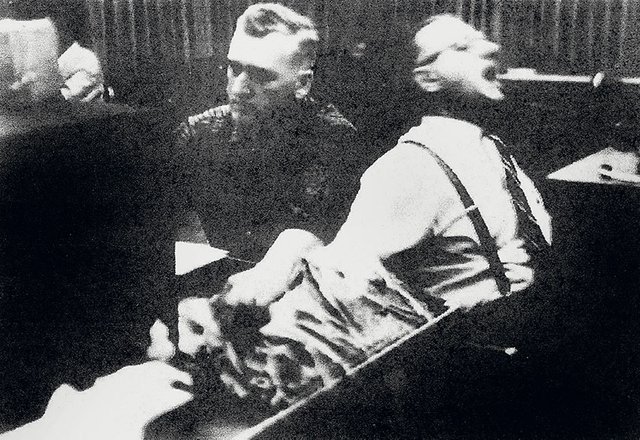
3. The genes for the perfect person.
It is forbidden: to Improve human genes.
What is the interest of science: Achievements in sport, science and art are largely dependent on heredity of a person. It is theoretically possible to create a genome, the owner will have the muscles Schwarzenegger, charm of brad pitt and intelligence Grigory Perelman. At the same time he will not be afraid of alcoholism, depression and drug addiction.
"Progress is unlikely to focus on correcting deficiencies. Cured disease and stopped the aging person will be accepted for the improvement of their own body, for his restructuring according to their own plans and desires. People will be able arbitrarily to sculpt his own body and brain to add a new ability — the ability to live underwater, fly, feed on the energy of sunlight — to add new parts of the brain, new organs," predicts supporters of the so-called transhumanist movement.
— Human genome is decoded, but not understood, — says Vyacheslav Tarantul, Deputy Director for science of the Institute of molecular genetics Russian Academy of Sciences. And now scientists are trying to understand why answer genes in DNA sequences.
The reasons for the ban: If the found genes are related to disease, you should study and try to be more "healthy". But to invade the genome for the betterment of the human species until it is banned.
"Interventions in the human genome, aimed at its modification, may be made only for prophylactic, therapeutic or diagnostic purposes and only provided that such intervention is not aimed at changing the genome of a person's descendants," reads the international Convention on human rights and Biomedicine.
Any manipulation of genes is a certain risk. And this risk is justified only in the case when a person faces a fatal disease. On the other hand, if the function of all genes will finally become clear, the desire to create the perfect encounter for each person. And then the talent that are born on the table of the genetic surgeon, will lose its value.
Ways to circumvent the ban: it is Not always possible to define the line where the end of the therapeutic target, and starts "improving the breed".
Reflection in culture: Books — Aldous Huxley "brave new world" Sergei Lukyanenko "Genome"; the series "Secret materials".
4. To work with "black death".
It is forbidden: to Work with variola virus and other dangerous infections.
What is the interest of science: Smallpox — an example of total victory is medicine. Thanks to vaccinations, the disease, which a hundred years ago, has decimated millions, were completely eliminated. In 1980, the world health organization officially declared the eradication of smallpox on the planet Earth.
But scientists really want to continue working with this virus. First, it is unknown whether or not he is again, and should in any case improve the vaccine. Secondly, additional knowledge about it is useful for fighting other viruses. Thirdly, it's just interesting.
The reasons for the ban: the Topic of biological terrorism in recent decades has become one of the most popular. If any villain will be able to take possession of the smallpox virus, it will be more terrible than any atomic bomb, given that the mortality in this disease reaches 90%, and vaccination stopped in the early 80s. Even if you do not take into account malicious intent, we cannot exclude the risk of accidental contamination.
Today no one has the right to work with samples of variola virus. An exception is made for only two laboratories: one belongs to the Centre for control and prevention of diseases of the USA and another research center "Vector", located near Novosibirsk.
Ways to circumvent the ban: the Only option is to contact the American or Russian laboratory. But you need to hurry up: according to the decision of the who, the last samples of smallpox virus should be destroyed in 2014.
A reflection in the culture: There are hundreds, if not thousands, of films in which the main character — a deadly virus escaped from the laboratory walls. Take the "Epidemic" with Dustin Hoffman.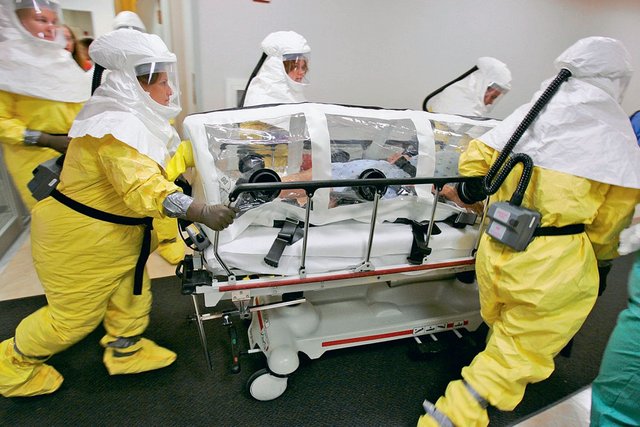
5. Cells from the baby
It is forbidden: to Conduct experiments with stem cells taken from human embryos.
What is the interest of science: Stem cells can be figuratively described as cells without specialization: as you grow, they become nervous, circulatory, muscular, etc. Scientists plan to learn to manage this mechanism that will allow us to cure many diseases — for example, to grow tissues and organs for transplantation.
Stem cells have with each adult, but they occur rarely and in isolation. Easier to take them out of the embryo, where they are in the concentrated state is true, the germ of it dies.
Typically, scientists for these experiments, using embryos that were unused in the treatment of infertility by IVF.
— When a procedure grows to seven or eight embryos, and hoisted the woman, usually one or two, — says Roman Deev, medical Director of the Institute of human stem cells. In any case, the remaining after IVF embryos would be killed.
Then, on the basis of stem cells, scientists are trying to create medicines for the treatment and conduct more complex experiments, trying to grow from these cells to the liver or kidneys.
The reasons for the ban: Killed the embryo, read, little man. And even a good goal — curing a dozen deadly diseases, and thus saving the hundreds of living people — yet does not justify the killing of embryos.
In Russia, the ban will appear with the adoption of the law "On biomedical cell technologies", which is being developed since 2010 and has already caused an uproar among specialists. Thus, the community of transhumanists collecting signatures with the demand to change the text of the document. In particular, they are asked to lift the ban on experiments with stem cells. The bill is not changed so far, but not adopted. The struggle continues.
Similar prohibitions exist in some EU countries. For example, in Italy in 2004, a law banning the use of embryos to obtain stem cells and even egg donation.
Ways to circumvent the ban: Until the law came into force, experts are trying to lobby for their interests. What happens, is unclear. A precedent case is, in the history of science of the United States. So, in 2010, the Federal court of the district of Columbia invalidated a previously established ban on experiments with stem cells — the ban emerged after a group of religious citizens has filed a lawsuit against the scientists. Scientists this court won and obtained the right to conduct such experiments.
Reflection in culture: a Theme in the new science, and we have not found any well-known movies or books. The writers and the writers have some work to do.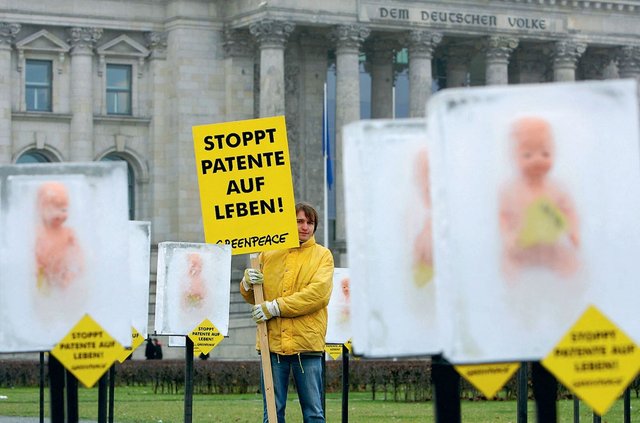
6. To play God.
What is prohibited: human Cloning.
What is the interest of science: the Most hyped and controversial experiment here is twenty years is considered cloning. And the most promising technology cloning — the method of transfer of the nucleus, which in 1996 British scientists gave birth to Dolly the sheep. In a fertilized egg, devoid of the nucleus - transplanted normal cells of a creature that you want to clone. Then, the implanted egg of a surrogate mother.
Contrary to popular belief, human clones will not be something unique. Its similarity with the "original" will be even less than between identical twins (they have to genetic identity is added to the same terms of fetal development). If we clone Lenin, he probably won't burred, will be taller and will not engage in revolution, and, say, legal support of real estate transactions.
But, theoretically, cloning could solve many scientific problems — for example, the eternal debate about what is in the psyche and the human body is connected with genes, and that the conditions of life.
The reasons for the ban:
— There is not one reason, says Boris Yudin, head of Department of comprehensive problems of human studies of the RAS Institute of philosophy. — First, the problem of efficiency. You need to conceive a hundred human embryos, of which three survive. The others have at different stages of the study to die. Imagine you come to a woman and say, zaberemeneete, please, 100 times, 97 of which will miscarriages. Second, these technologies are not developed, and there is a great risk that they will be freaks. And it is unclear what to do with them. It is also unclear lifestyle clones and their future status — as will be seen in the society of this man?
In most countries cloning is prohibited directly. For example, the Russian law "About bases of health protection of citizens in the Russian Federation" includes "a Ban on human cloning". However, there are exceptions.
— In Chinese this prohibition is not, — says Pavel Tishchenko, philosopher and bioethicist. — I was a few years ago, I was at the world conference on the ethics of genomic research in Beijing, one of colleagues asked the Chinese delegation, long the obvious question: "Why you do not clone a human? You're almost there!" And the Chinese said: we are not doing this for one simple reason — if we clone human, those Americans and Europeans who work with us, refuse to cooperate. That is no problem, only three out of a hundred will survive — China has no such experiences. But they realize that they, as they say, a good house will not be invited.
Ways to circumvent the ban: Cloning is therapeutic and reproductive. With the second case all is clear: we are talking about creating a full-fledged human clone. This is unlikely to be allowed in the near future. And therapeutic cloning means that the embryo survives only up to 14 days. Then he had taken stem cells from which it is possible to grow individual tissues or organs, and for someone who has taken genes.
— The ban on reproductive cloning science, maybe a little lose. But the fact that we have banned therapeutic, seriously hampers all research with stem cells — sighs biologist Vyacheslav tarantula.
It is possible that, after cloning technology on animals, legislators will still allow therapeutic cloning for therapeutic purposes.
Reflection in culture: a novel Nancy Freedman's Joshua, son of nobody", the movie "the Sixth day", "Island", the series "Clone".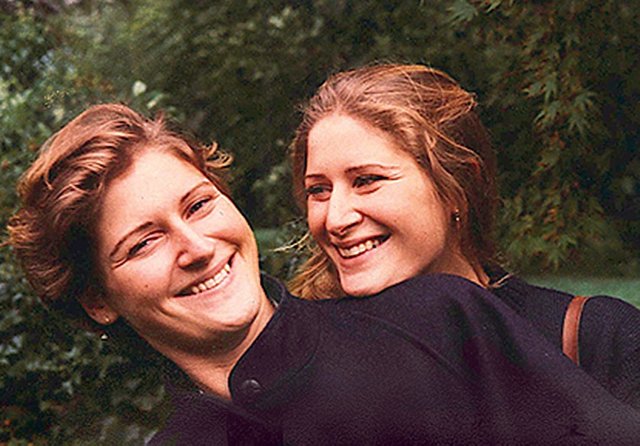
7. To add a bit of humanity.
What is forbidden: the Use of organs from genetically modified animals for transplantation to humans.
What is the interest of science: Animals of long ago try to use as donors. So, in 1963, the man was a kidney transplant chimpanzee. But nine months later a foreign body was rejected from the new owner. More successful was the transplant of human organs pigs. For example, last year at the Moscow Bakulev centre of the patient's implanted heart valve grown from biomaterial pigs. The operation was conducted by Leo Bokeria.
But the risk here is very high. The body of the animal may be cut off due to unusual our body proteins. Way — to grow animals that are part of the gene replaced by a human. Technologically it is quite possible — for example, Russian and Belarusian scientists have been able to bring a goat, milk which contains human protein.
The reasons for the ban: the transplantation of animal organs — a very dangerous thing. There is a risk that, after receiving a foreign body, the person will become susceptible to illness that met the animal, for example, to the virus of mad cow disease. But if we are talking about a modified organism, it is possible that a foreign gene will interfere with the work of neighbors, or activates other genes, leading to pathology.
Ways to circumvent the ban: to Prove the safety and efficacy of the technique in animal experiments and biological models.
Reflection in culture: a Tale by Mikhail Bulgakov "heart of a Dog".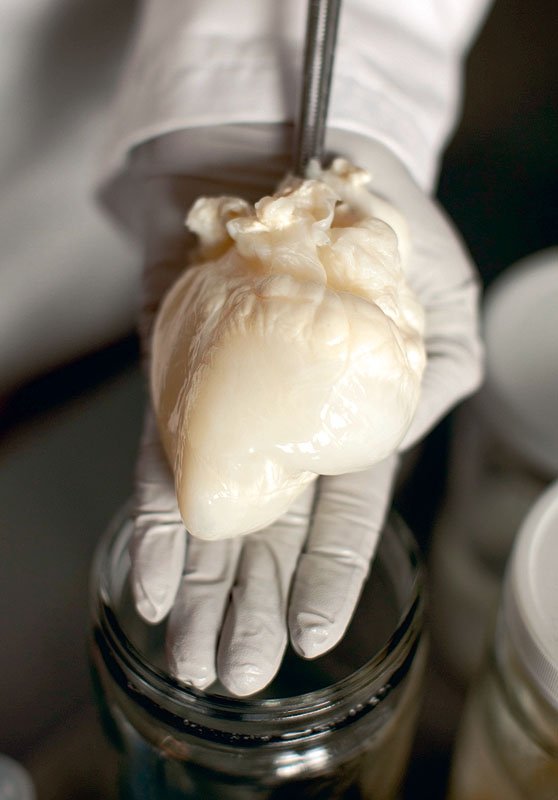
8. Tablet for a child.
What is prohibited: Clinical trials of many drugs on children.
What is the interest of science: Before the medicines begin to be sold in pharmacies, they undergo many years of studies. Drugs for children are first tested on adults and then on patients of that age whom they are intended. Without such studies do not. "Children are not "little adults". When used in children, drugs for adults can demonstrate different pharmacokinetics, pharmacodynamics, a different profile of efficacy and safety. Furthermore, children need different dosage forms than adults," explain the experts of the Association of clinical research (AOKI).
The reasons for the ban: Testing new drugs on people many causes protest. Tell horror stories about the thousands killed during the test. And when it comes to children, pharmacists in General seem evil monsters.
One popular myth is that Western companies as Guinea pigs use people from less developed countries. But according to the Value of Insight Consulting, 76% of studies of the first phase (it is the most dangerous) is carried out in three countries: USA, Canada, and the Netherlands. This is largely due to the fact that there are more liberal legislation.
In Russia, the regulations are strict. In our law "On circulation of medicines" about clinical trials written: "the Children can be considered as potential patients of this study only if his conduct is necessary for strengthening children's health or prophylaxis of infectious diseases in children".
Russian pharmacists claim that this effectively nullifies the development of new paediatric drugs for the prevention of allergies, cancer and other illnesses that are not related to infectious.
Ways to circumvent the ban: Testing the medicine in another country, where the law is softer.
Reflection in culture: a novel by Stephen king's "Firestarter" and the eponymous movie, movie Yuri Grymov Strangers.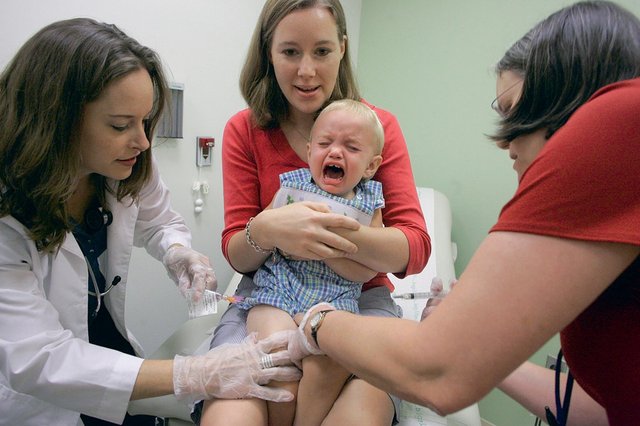
9. Monkey experiment.
It is forbidden: Experiments on chimpanzees, gorillas and orangutans.
What is the interest of science: of a chimpanzee's DNA is 96% identical with human. Primates are an ideal model for drug discovery or development of biotechnology.
The reasons for the ban: animal welfare Advocates are waging total war against all experiments on animals that in some countries, biological laboratories protected almost stricter than military bases). Monkeys especially. After all, they are the strongest of all like people, only man has the ability to consciously accept the terms and conditions of the experiment, a chimpanzee has no choice. Therefore, in some countries it is considered that the experiment with people-volunteers more ethical than monkeys.
So, in September 2010 in the European Union was completely banned experiments with chimpanzees, gorillas and orangutans. In the United States continues the war between animal rights activists and biologists. There experiments are not yet banned, but severely limited. The reason for the study can only be the search for treatments for serious and dangerous disease threatening the lives of many people. To Finance such a project should only from public sources.
In Russia the situation is calmer, although radical animal rights activists are available too. However, experiments involving monkeys in our country are rare. Doing this practically in one place — in primatologichesky center Institute of medical Primatology RAMS, located close to Sochi.
Ways to circumvent the ban: to Conduct experiments in countries where experiments with monkeys allowed. Or to prove that the experiment is so important for humanity that for the sake of it is not a pity to risk the life of a humanoid.
Reflection in culture: the Film "rise of the planet of the apes.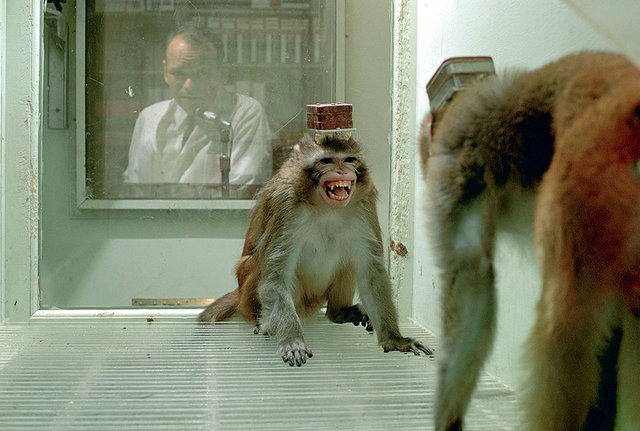
10. To feed the algae.
It is forbidden: large-Scale experiments on climate change.
What is the interest of science: global warming — the most fashionable topic. We are assured that the fault of person on the planet is getting warmer, which is fraught with many disasters. For the scientists the climate is a very complicated matter depending on many factors. There are hundreds of ways the system can reconfigure.
For example, academician Yuri Izrael, head of the Institute of global climate and ecology, proposes spraying in the lower stratosphere approximately one million tons of small particles that reflect sunlight and thus contribute to the cooling of the planet. From the same series — dropping iron filings into the ocean, creating an artificial volcano and the installation of giant mirrors. But so far none of these projects were not implemented.
The reasons for the ban: a Few years ago, the German research ship Polarstern traveled to the Arctic ocean with 20 tons of iron sulphate on Board. The cargo was scheduled to spray an area of over 300 square kilometers. This was caused by increased proliferation of microscopic algae, which absorb carbon dioxide and thus reduce the greenhouse effect.
But at the last moment the expedition received a message from the Ministry of education and science of Germany to immediately stop the experiment. Against such interference in a system of the World ocean was made by environmental organizations. They blamed scientists that calculate all the risks and consequences of this experiment impossible. For example, the rapid growth of algae can absorb all the living, forming the so-called dead zone.
Ways to circumvent the ban: Moratorium does not apply to the experiments of the smaller scale activities close to the shoreline.
Reflection in culture: very Pro global warming had taken a lot of disaster movies. But the fight against it itself turns into a disaster, while not yet reflected in popular culture.
Even with all of these forbidden scientific experiment laws. I wonder how many MAD SCIENTISTS are out there in there secret mad scientist lab making mad scientist stuff. Something to ponder.
I think a lot will remain a mystery!